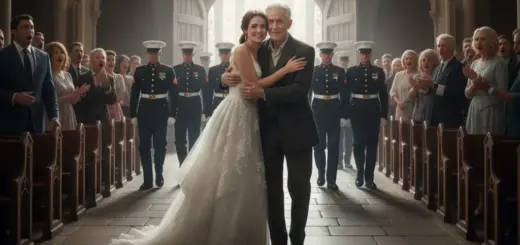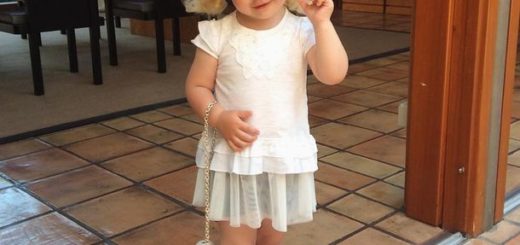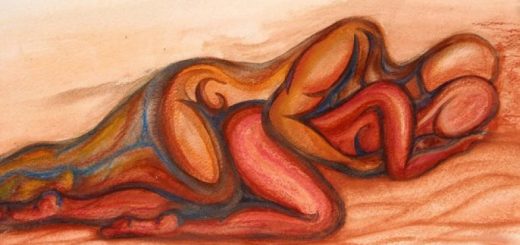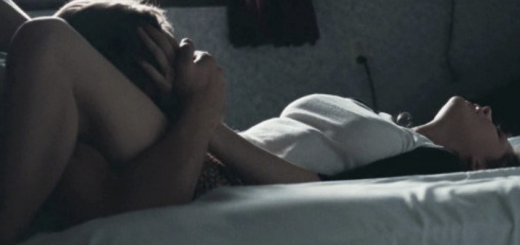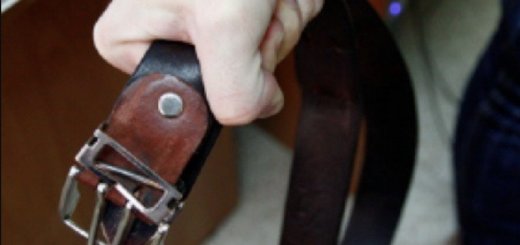I wasn’t surprised when the letter from Randall’s attorney arrived. I was surprised it took him this long. It came in a heavy white envelope with gold trim and a return address from a downtown firm I knew by reputation: expensive, aggressive, and always dressed in courtesy. The kind of people who smile while sharpening the knife.
The letter was polite. It used words like «unfortunate discrepancy,» «pending clarification,» and «amicable resolution.» It requested a brief consultation to «align understanding.» It didn’t mention money, but it didn’t have to. It ended with, «Our client hopes to avoid formal litigation but reserves the right to pursue all legal remedies should discussion fail.»
I read it once, then again, then set it down. Somewhere deep in my chest, something old stirred. Not fear, not quite, more like memory. A memory of the girl I once was, sitting in a crowded office with Derek, signing our first mortgage papers while a broker talked over me like I wasn’t there. I hadn’t spoken up then, not once. Just nodded and signed and smiled when it was done.
I made tea, sat at the kitchen table, and called Mr. Harold. He picked up on the second ring.
«I was expecting your call,» he said. «You received Randall’s letter.»
«I did.»
«I’ve already drafted a response.»
«Will it hold?»
«It won’t need to. The law holds. This is posturing.» Harold continued, «They may try to bluff. They might even file something just to rattle you, but the will stands, May. It’s unshakeable.»
I believed him. Still, that night, I didn’t sleep. I lay awake, thinking not of the estate or the paperwork but of Randall at seven years old, standing at the edge of the pool, afraid to jump. Of how I’d stood in the water with my arms open, promising I’d catch him. And I did. Every single time. There’s no word for the ache of knowing someone you once caught without fail would now rather see you drown.
The next morning, I wrote Randall a letter. Not through lawyers, not for court. For him. It was one page, typed.
«Randall, I received your attorney’s letter. You’ve made your position clear. Here’s mine. I will not rescind the will. I will not entertain compromise. I will not sit across from men who see me only as a delay in their plans. You’ve already taken enough from me. I’m simply choosing, for the first time, not to give you more. Mother.»
I printed it, folded it, and placed it in an envelope with no return address. I drove to the post office myself and dropped it in the slot. I didn’t feel victorious or vindicated. I felt like someone who’d set down a heavy box after carrying it too far for too long.
When I got home, the light on the answering machine was blinking. Claire’s voice. «Hi, Aunt May. I hope this week hasn’t been too heavy. I baked lemon squares. The kind you like, with extra zest. I’ll bring them by tomorrow, okay? I miss you.»
I smiled. For the first time in days, I smiled. The world had narrowed, yes, but not in the way Randall thought. It hadn’t closed in. It had distilled, reduced to only the people who mattered. And in that smallness, there was finally space to breathe.
Claire arrived the next afternoon with a tin of lemon squares and that soft knock she always used, like she wasn’t sure she was welcome even after all these years. I opened the door before she could knock twice.
She smiled when she saw me. «Still fast on your feet, I see.»
«Still sweeter than you need to be,» I said, stepping aside.
She carried the tin with both hands, like it was breakable. Inside, the squares were wrapped in parchment, dusted with sugar, arranged in neat rows. Marlene would have liked that. The precision. The care.
We sat at the table, same as always. I made us tea, poured from the good pot, the one with the tiny crack under the handle. Claire never mentioned the crack. She just held her cup with both hands and listened.
«Have they called again?» she asked after a while, without naming who.
«Randall sent a lawyer. Trevor came by. Twice.»
«And?»
«And I told them what needed saying.»
She nodded, eyes lowered, picking at the edge of the parchment. «I’m proud of you.»
That caught me off guard. I almost laughed. I couldn’t remember the last time someone said that to me. I looked at her. Twenty-six. Hair always half-tied. Freckles across her nose. Kindness in every movement. She was Marlene’s blood, not mine by birth. But family finds its way.
«You remind me of her sometimes,» I said. «Not the way you look, just the way you carry yourself.»
Claire’s eyes softened. «She was good to me. Even when she forgot my name, she still held my hand like she knew me.»
«She did know you. Her heart never forgot.»
We sat a while longer, drinking tea and eating lemon squares in silence. Then I told her. Not everything, but enough. That the estate was secure. That things were being transferred. That a trust was being prepared in her name. Modest, but stable. Enough to give her options.
She went still. «You don’t have to do that.»
«I know.»
«But why me?»
«Because you come. Because you stay. Because you never once asked for anything and always brought something anyway. Your time, your presence, your lemon squares.»
She looked down, eyes wet. «I don’t deserve that kind of trust.»
«No one does,» I said gently. «That’s the point of it. It’s not earned. It’s given.»
We finished our tea. She helped with the dishes, even though I told her not to. And before she left, she turned at the door. «If they ever try to make you feel small again,» she said, «just call me. I’ll remind you who you are.»
I didn’t cry until the door closed. Not because I was sad. Because someone said they would stand by me, and I believed them.
The call came late. I’d already turned off the lights, put on my nightgown, and folded the day away like a worn blanket. I didn’t recognize the number, but I answered anyway. At a certain age, you answer, because you never know what might not wait till morning.
«Mom?» Trevor. His voice was low, strained, not like the Trevor who used to call when his car broke down or when he’d forgotten his rent. This was something else.
«Are you all right?» I asked.
There was a long pause. «Randall’s filed a motion. He’s contesting the will.»
I closed my eyes, not from shock, just exhaustion. «He says it’s fraudulent,» Trevor went on, «that Marlene was incompetent, that she was pressured.»
«She wasn’t.»
«I know that.»
«Then let him fight ghosts.»
Another silence. «I don’t know what to do,» he said. «He’s threatening to sue me if I don’t support him.»
That made me sit up straighter in bed. «You?»
«He thinks I’m siding with you, which I guess I am, but he’s furious, says I’m betraying family.»
I nearly laughed. Betraying family, as if Randall hadn’t redrawn the lines himself, as if loyalty was a tool he could pick up and drop as he pleased.
«Do what you need to protect yourself,» I said calmly, «but don’t protect him at the cost of your spine.»
«I’m not as strong as you think I am, Ma.»
«You don’t have to be strong. You just have to be clear.» He didn’t respond to that. «You’re not a boy anymore, Trevor. You don’t need your brother’s permission to be decent.»
He sighed. «I wish Dad was here.»
I did too. Derek had a way of settling things, not with anger, but with presence. He’d say one sentence and people would stop talking. He believed in fairness, but not fools.
«Dad would have told you to stop asking what Randall wants and ask yourself what’s right.»
«I know. I also know you’re scared. That’s okay. Just don’t let fear be the loudest voice in the room.»
We talked for a few more minutes, nothing dramatic, no confessions, just the quiet trudging of two people trying to find the edge of a mess someone else made. After we hung up, I stayed awake a long time, staring at the ceiling. Randall wanted a war. Fine, he could have one, but not with fists, not with shouting—with silence, with boundaries. With the kind of dignity that doesn’t flinch when insulted or bend when pushed.
I made tea and sat by the window. The night was soft, wind brushing the trees, stars peeking between clouds. Randall had no idea what it meant to be truly alone, but if he kept going, he’d learn. And it wouldn’t be me who taught him. It would be the echo of every door he slammed shut.
The house was quiet again, but not the kind of quiet that unnerves you. It was the kind that holds its own shape, a stillness earned, not imposed. I watered the plants. I straightened the afghan on the back of the couch. I folded the laundry slowly, methodically, as if every shirt and towel deserved my full attention.
I hadn’t always been this way. Years ago, when Derek was alive and the boys were young, everything was movement. Cereal bowls half-rinsed, jackets tossed over chairs, school papers scattered across counters. Back then, silence was a luxury. Now it was my companion.
It was almost noon when the mail arrived. A thick envelope, legal stationery, the courthouse seal stamped on the front. Randall had followed through. I opened it at the kitchen table with my letter opener, a small brass thing I’d had since 1974, a retirement gift from my first principal.
Inside was a formal notification of Randall’s motion to contest the estate: accusations of undue influence, allegations of mental incompetence on Marlene’s part, a request to freeze asset transfer until a judge could review the will. There it was, in black ink. A son suing his mother.
I set the letter down, not slowly, not dramatically, just set it down. Then I picked up the phone and dialed Harold.
«Received it,» I said when he answered.
«So did I.»
«What’s next?»
«I respond. Then we wait.»
«Will it hold anything up?» He hesitated. «It might, temporarily.»
I nodded, even though he couldn’t see me. «Let me know what you need.»
«I already filed a response. It’ll be fine, May. We’re still on solid ground.»
After the call, I made a sandwich and ate it while standing. Then I walked to the bookshelf and pulled out Marlene’s favorite album. Thick leather, worn at the edges, full of photos from years most people had forgotten. There she was in 1986, standing on a boat in a denim jacket two sizes too big. In 1992, grinning at a Fourth of July barbecue, her face smudged with charcoal. In 2003, standing beside me in front of the old library, holding hands.
She didn’t look incompetent. She looked alive. And now, somehow, she was being made into an argument. That was the cruelty of it. The way Randall wasn’t just challenging me, but erasing her. Painting her final years as feeble, her choices as tainted, her judgment as invalid, as if love made her less capable, as if trust made her a fool.
I sat with that for a long time. The anger didn’t come all at once. It arrived like a low tide, creeping up the shore until the soles of my feet were wet. And when it reached my knees, I stood up.
I walked to the hallway closet and pulled down the fireproof box again. Inside were Marlene’s journals. Not all of them, just the ones from her final years. She’d stopped writing toward the end, but before that, she’d written plenty.
I flipped through the pages. Entries about her illness, about me, about how she wanted her estate handled, about her decision to keep the old will intact. Her handwriting was strong. Her sentences were clear. No confusion, no fog.
I made copies of the most relevant entries, took them to the print shop the next morning, bound them, and labeled them. When I mailed them to Harold, I included a note: «If they want proof of her mind, give them her words.»
I didn’t wait for Randall to call. I didn’t care if he did. I’d stopped explaining myself years ago. I’d just forgotten to act like it.

